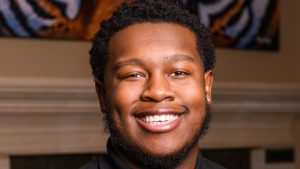
April 19, 2021
Shining bright
One of the defining characteristics of School of Health Professions students is their desire to improve lives. David Gardner II, a senior Health Sciences major from Chicago, is an example of what it means to bring heart and dedication together to help others. Journey to Health Professions David Gardner attributes his success to support and drive from family members including his mother, Kristee Davis (top), a psychology professor, and grandmother, Geneva George, a civil rights activist. Gardner transferred to Health Professions his junior year after initially pursuing an education in animal science. Meeting with his adviser and…
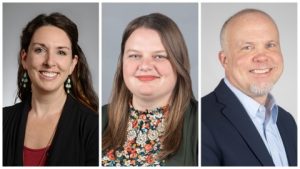
April 16, 2021
University of Missouri System honors professors with President’s Awards
University of Missouri President Mun Choi recognized nine University of Missouri faculty for their outstanding contributions to their universities, Missouri and the world. Three School of Social Work faculty received the President’s Award for Intercampus Collaboration: Kelli Canada, associate professor, Ashley Givens, assistant professor, and Clark Peters, associate professor. This recognition was shared with colleagues from UMSL and UMKC. Together, this group comprises the inter-campus research team behind the Prison Research and Innovation Network grant, funded by the Urban Institute. In collaboration with the Missouri Department of Corrections, this research team was one of only five selected nationally to examine…

April 8, 2021
MU study finds racial inequality within heart transplant process
April 8, 2021 A new study from the University of Missouri found that Black patients with advanced heart failure were more likely to receive a left ventricular assist device, or LVAD, later in their disease progression compared to white patients, ultimately resulting in worse health outcomes. Adrianne Frech, an associate professor in the MU School of Health Professions, is a medical sociologist interested in addressing inequalities within the health care system. She was curious if race affected a patient’s ability to access newer versions of LVADs, which are implanted into the chest of a patient with advanced heart failure to…
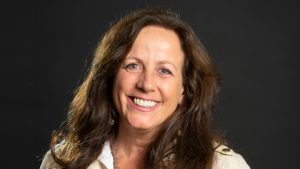
March 24, 2021
Laura Schopp announces retirement
March 24, 2021 Laura Schopp, professor and chair of the Department of Health Psychology in the School of Health Professions, will retire this summer, after 26 years of service at MU. “I moved to Columbia in 1989 for graduate school wondering if I could possibly spend three years in the same place after having moved a lot in the previous years,” said Dr. Schopp, who earned her master’s degree and PhD from MU. After completing a clinical internship at Duke University, Dr. Schopp returned to MU in 1995 for a post-doctoral fellowship before transitioning to a full-time faculty position. “MU…

March 24, 2021
Audio-enhanced storybooks can improve vocabulary of at-risk preschoolers
March 24, 2021 A new study by the University of Missouri has found that using interactive, pre-recorded storybooks can improve the vocabulary of at-risk preschoolers – good news for getting a vulnerable population of children ready for school. “While we are working with children who are only 4 or 5 years old, we teach them the vocabulary words they will need to know when they eventually enter elementary or middle school,” said Elizabeth Kelley, an assistant professor in the MU School of Health Professions, who collaborated with Howard Goldstein at the University of South Florida, on the project. “If we can teach…
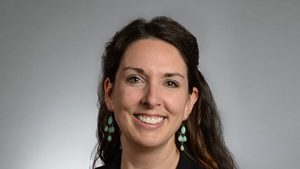
March 22, 2021
Crisis Intervention Training reduces stigma of mental illness in prisons
March 22, 2021 Before joining the School of Social Work at the University of Missouri, Professor Kelli E. Canada worked as a community clinical social worker in Chicago. There, many of her clients struggled with mental illness and were dealing with long stints in the prison system. What she discovered was corrections officers play an important role in prisoners’ lives, but often don’t understand how to deal with behaviors associated with mental illness. With that in mind, Canada partnered with the Missouri Department of Corrections (MODOC) to study how adjusting de-escalation techniques could improve corrections officers’ interactions with inmates with mental…
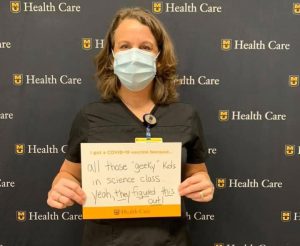
March 18, 2021
Clinical faculty among first to receive COVID-19 vaccine
When MU Health first started vaccinating health care workers, Jenny Keely, associate clinical professor in respiratory therapy, was among the first to receive the COVID-19 vaccine. Keely, a licensed respiratory therapist, has worked several Saturday shifts at University Hospital on a non-Covid unit in order to alleviate some staffing shortages the hospital has experienced due to COVID-19. We talked to Keely, BHS ’01, M Ed ’12, about her experience working at the hospital and her decision to get the vaccine: Q: What went into your decision to get the COVID-19 vaccine? A: Ultimately, it came down to weighing any hesitation…
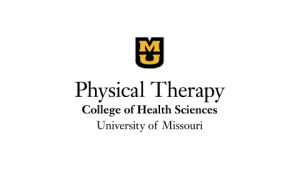
March 17, 2021
Physical Therapy represents at 2021 APTA Combined Sections Meeting
March 17, 2021 The Department of Physical Therapy is proud to highlight the scholarly activity of Mizzou DPT faculty, clinical partners, and students at the 2021 Combined Section Meeting of the American Physical Therapy Association (APTA). Impressively, the department had over a dozen presentations, offered virtually, at the profession’s largest annual event. Presentations focused on sub-specialty topic areas including pediatrics, neurology, chronic pain, and educational research. While live presentations were offered throughout February, recorded and on-demand content available will be available until the end of March 2021. We hope you join us by visiting the 2021 Combined Sections Meeting…
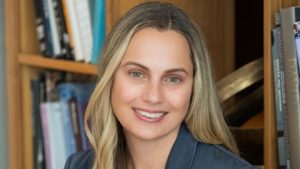
March 12, 2021
Michelle Teti receives Fulbright Scholar Award
Dr. Teti will travel to South Africa to collaborate with University of Western Cape researchers March 12, 2021 The University of Missouri School of Health Professions is pleased to announce that Michelle Teti, associate department chair and associate professor of Public Health, has received a Fulbright U.S. Scholar Program award in public health for the 2020–21 academic year from the U.S. Department of State and the Fulbright Foreign Scholarship Board. Dr. Teti, who is also affiliated with the MU Black Studies department, is one of more than 800 U.S. citizens who will conduct research and/or teach abroad for the 2020–21…
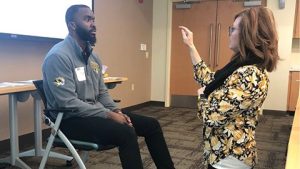
March 10, 2021
Dr. Becky Bliss featured guest on concussion podcast
March 8, 2021 Becky Bliss, neurologic clinical specialist and assistant teaching professor in Physical Therapy, was a featured guest on two episodes of the podcast Concussion Corner earlier this month! March is Brain Injury Awareness month, and Dr. Bliss wants everyone, regardless of whether or not they are a health care provider, to be knowledgable about the signs and symptoms of brain injuries. “Concussion or mild TBI is a unique injury because there are not visible impairments to the outside person. Often these patients struggle with symptoms like dizziness, visual disturbance, headaches, neck pain, exertional intolerance and/or balance…